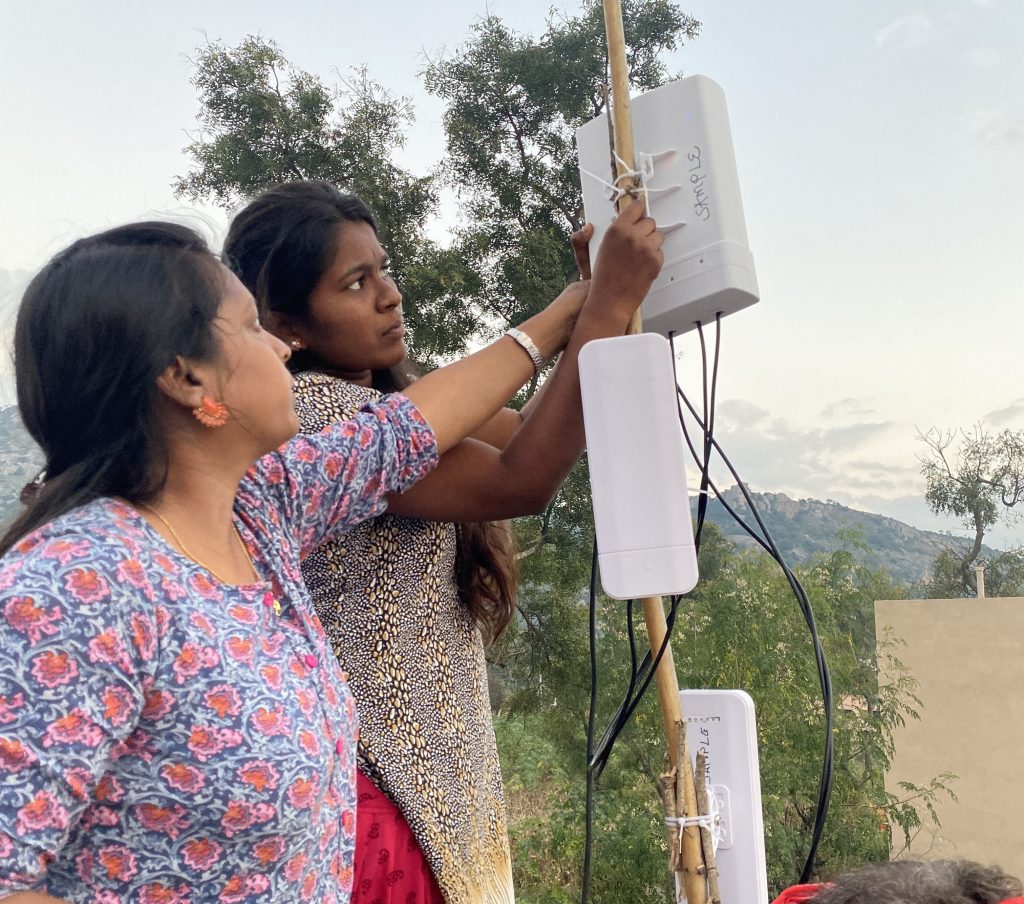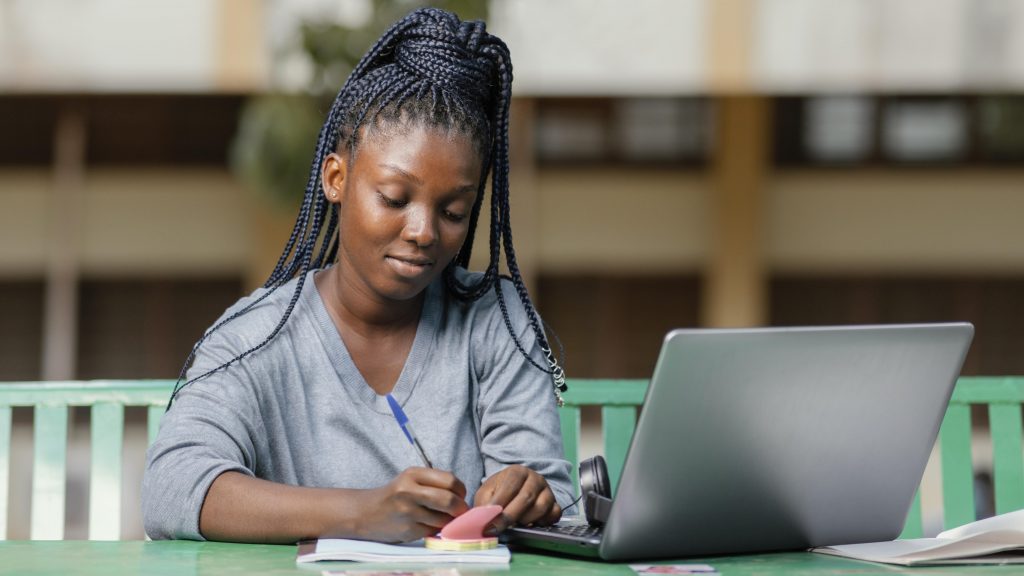By Onica Nonhlanhla Makwakwa
In celebration of Girls in ICT Day
Artificial intelligence is shaping our world—quietly influencing life-changing decisions about healthcare, education, employment, and even justice. But as the reach of AI expands, so does the risk of reinforcing deep-rooted inequalities. Biased algorithms, data deserts, and exclusive design processes have made one thing clear: if we’re not intentional about equity, AI will mirror the very injustices we hope it can solve.
This Girls in ICT Day, we’re flipping the script. Imagine a future where girls—especially those from underrepresented communities—aren’t sidelined or silenced. They’re leading every stage of AI: crafting the algorithms, forging the ethical frameworks, engineering breakthroughs, and safeguarding the core values that govern our digital world.
Without Coding Justice, the future of AI faces an unimaginable reckoning.
Why Human Rights Matter in AI
AI isn’t neutral. From facial recognition systems that continuously fail and perpetuate the feelings of erasure that darker-skinned women face daily, to predictive policing tools that disproportionately target marginalized communities, we’ve seen how data can discriminate and automate inequality.
This isn’t because AI “chooses” to exclude. It’s because, without context, it inherits the blind spots of its creators and the flaws in its training data. That’s why embedding human rights principles—like fairness, non-discrimination, privacy, and transparency—into AI is not optional. It’s urgent.
And who better to champion these principles than the generation that has always lived online—and often on the margins?
Girls in ICT: More Than Just Coders
When girls learn to code, they’re not just gaining a technical skill—they’re acquiring a powerful voice in tomorrow’s world. But it’s not just about coding. We need ethically grounded technologists who can confidently and without reproach ask:
- Who does this algorithm serve?
- Whose experiences are absent from the data?
- What unintended harms might this model cause?
- How transparent is the decision-making process?
We’re talking about genuine power: girls shaping AI’s trajectory, dictating its purpose, and setting the moral compass for every line of code. Because until they’re the architects—and not just the end users—AI will never reflect the full spectrum of human experience. This is the heart of AI for human rights. And this is why we need more girls—not just learning AI, but reimagining it.

Building AI that Respects Rights: Where Girls Can Lead
Three ways that girls can play a transformative role in building ethical AI:
- Participating in Inclusive Design: Girls bring lived experiences that are often missing in AI development. When they’re part of the design teams, the resulting technology is likely to be more representative, accessible, and just.
- Challenging Biased Data: Young women can critically assess datasets, flag gaps, and advocate for community-driven data collection that reflects their realities.
- Developing Ethical Frameworks: Through formations such as Girls for Algorithmic Justice (GFAJ) founded by youth advocate Anika Dugal, also 15-year old Francesca Mani’s Advocacy Against Deepfake Abuse, and Maha Jouini of Agence Francophone et Africaine de l’Intelligence Artificielle (AFRIA), girls and young women are leading conversations around digital rights, AI ethics, and algorithmic justice. Their research, civic engagement and activism can shape the policies that govern AI use.
Creating Tools for Empowerment
From chatbots that help survivors of gender-based violence, to apps that monitor climate change in underserved regions—girls are already building AI tools that promote dignity and human rights. Here are a few standout examples:
- HerSafeSpace – Nigeria. Developed by the Brain Builders Youth Development Initiative (BBYDI), HerSafeSpace is an AI-powered chatbot designed to combat online GBV in West Africa. The chatbot offers real-time support to women and girls facing online violence, providing a safe and confidential platform for assistance.
- Zuzi – South Africa. Zuzi is an AI chatbot integrated into the Kwanele mobile application, offering a non-judgmental platform for GBV survivors. Users can share incidents, and the chatbot responds with helpful solutions or advice, aiming to reduce the stigma around reporting GBV.
- Ame – Botswana. Xavier Africa, in collaboration with the Botswana Gender-Based Violence Prevention and Support Centre (BGBVC), developed Ame, a WhatsApp chatbot. This tool allows survivors to report instances of GBV and connects them with trained counselors for immediate support.
- Technovation Girls – Global. Through the Technovation program, girls aged 10 to 18 worldwide have developed mobile apps to tackle climate change issues in their communities. Using platforms like Thunkable, these young innovators have created solutions addressing pollution, deforestation, and environmental education.
- Green Girls – Central Africa. The Green Girls initiative has trained over 3,000 girls and 600 rural women across Cameroon, the Central African Republic, and the Democratic Republic of Congo. Participants learn to generate solar energy and biogas, promoting sustainable energy solutions in their communities.

What Needs to Happen
To further unlock this potential, we must create pathways for girls—especially in the Global Majority—to lead in AI by:
- Investing in digital education that includes ethics, justice, and human rights—not just code.
- Funding girls-led innovation, giving them the tools and mentorship to turn ideas into impact.
- Bridging the digital divide, ensuring all girls have access to devices, connectivity, and safe online spaces.
- Elevating voices, supporting girls to be seen and heard in global AI governance spaces.
This isn’t a nice-to-have. It’s mission-critical. When girls from all backgrounds drive AI innovation, we unlock richer perspectives, challenge systemic biases, and build technologies that serve everyone.
Coding Justice Is a Collective Effort
AI doesn’t just need more women. It needs more conscious women.
More girls who question systems.
More technologists who prioritize justice over hype.
More builders who center humanity in every line of code.
This Girls in ICT Day, let’s go beyond slogans and skills. Let’s equip girls to code justice into the DNA of our digital future. When girls shape AI, they don’t just change tech. They change the world.